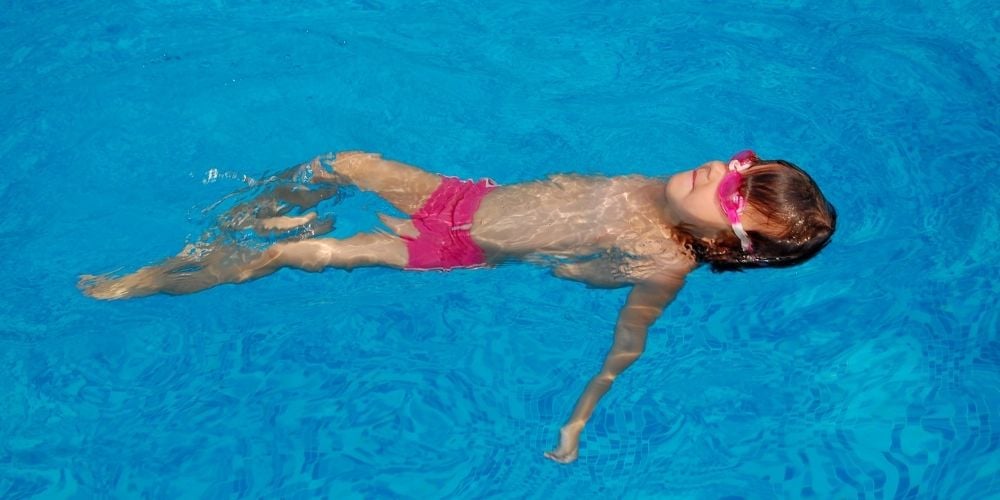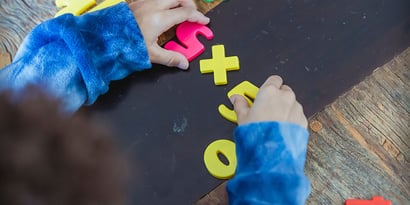Contents
- What are the benefits of swimming lessons?
- What skills does swimming develop?
- Can a 2 year old learn to swim?
- What is the best age to start swimming lessons?
- What should I look for when choosing swimming lessons?
Learning to swim is one of those skills that, once mastered, is impossible to forget. Much like riding a bike, swimming is best learnt in childhood when the mind and body are a little more supple. However, unlike riding a bike, swimming is the only sport that can save your life.
Sadly, when it comes to accidental deaths in childhood, drowning is still the most likely cause. It’s important to remember that there is a big difference between appearing confident in the water and actually being able to swim well. According to a recent report by Swim England, an astonishing 1 in 4 children can’t swim 25 metres when they leave primary school, even though it’s something that is required by the National Curriculum.
You may not be the most confident swimmer yourself, in which case you’re not alone. 1 in 3 adults can’t swim 25 metres unaided and many non-swimmers feel that their limited ability stops them from taking part in other water-based activities.
It’s natural for us to want our kids to master the things that we find daunting as early as they can so, whatever your reasons, here’s an insight into the watery world of swim schools.
What are the benefits of swimming lessons?
As well as helping your child learn a life-saving skill, the benefits of swimming lessons are plentiful. 💪
Aside from being a good workout, swimming improves physical wellbeing and fitness by:
- Keeping your heart and lungs healthy
- Strengthening bones and reducing joint pain (it’s a naturally low impact sport)
- Improving strength, stamina and flexibility
- Enhancing posture and balance
Swimming is a sport that lasts a lifetime. You don’t need to be a specific age or height or have a certain level of strength to get involved in swimming. Unlike some other sports, it’s not something that you have to give up later in life.
Swimming can also improve mental well-being as it can reduce anxiety and depression, lower stress levels and help you sleep better. 😌
What skills does swimming develop?
Being able to swim also improves your confidence. According to Swim England, “1.88 m young swimmers feel 3.3% more confident that they will achieve their goals than non-swimmers.” And this is amplified for girls, as swimming doubles their confidence levels!
Belonging to a swim school can also improve your child’s social life as people who swim are more likely to have a wider circle of friends. Children that can swim confidently are also able to take part in a wide variety of water sports such as surfing, kayaking and diving.
Can a 2 year old learn to swim?
There’s no real lower limit on when you can take your child for swimming lessons. Some baby classes start as early as 6 months, but they can be expensive. At the moment, there is little evidence to suggest that swimming lessons for babies under 1 lowers the risk of drowning. This is because, although they can make swimming-related movements, they don’t have the strength to lift their heads out of the water to breathe. That doesn’t mean that you shouldn’t take your baby to the pool – it’s often an enjoyable bonding activity that you can do together and allows your child to get used to being in the water.
Even if they’re not quite ready to join a class, you can still introduce the idea of swimming to your little one while they have a bath and most toddlers love a bit of water play! 🌊
What is the best age to start swimming lessons?
There’s no right or wrong age to start swimming lessons – and it can largely depend on you and your child.
When considering the best age to start swimming lessons, it’s a good idea to think about your child’s physical development and their level of maturity to help you decide if they’re ready.
Here’s a quick guide to what children can do in the water at various ages.
|
Age |
2 years |
3 years |
4 years |
5 years |
6 years |
|
Some studies show that learning from age 2-3 means children develop swimming skills at a faster rate than those who learn aged 4. Children who start learning aged 2-4 can pick up some swimming ability and will also learn how to behave around water. |
Between the ages of 5 and 6, most kids can pick up different swimming strokes. At this point in their development, they have the physical strength and mental ability to manage the coordinated repetitive movements needed in swimming. |
||||
|
For 3-5 year olds. Swimming can benefit their language and ability to understand things. |
|||||
|
At 4, children can become confident in the water and learn how to move underwater |
|||||
Don’t worry if your child is older than the other kids in their swimming class. The most successful Olympian of all time, Michael Phelps, didn’t learn to swim until he reached the ripe old age of 7, so there’s still time for them to go with the flow! 😎
What should I look for when choosing swimming lessons?
There are lots of things to consider when choosing swimming lessons. For younger children, it’s important to ask the following questions:
- Is the class appropriate for their age? Are they being asked to do things that are too structured/too complex/too physically demanding?
- Does the instructor use games to help your child learn and keep their interest?
- Does the instructor remain within arm’s reach of an adult at all times? (For children under 4, parents/carers should be included in the lesson.
- Is the water warm enough/clean enough for them?
These questions are useful when picking a swim school, regardless of your child’s age.
- How many children are in the class and where is it held?
- What qualifications does the instructor have and will they be in the pool or poolside?
- What safety habits does the course teach your children? (e.g. how to behave around water, what to do if you get into trouble in the water)
- Do the lessons follow a structure or give your child the opportunity to progress using levels and achievements?
It’s important to think about these things in relation to your child. For example, if your child doesn’t do well in large groups, then a busy swim class of 20 noisy kids is probably not for them. Equally, if your child is particularly nervous about being in the water, then a class where the instructor is in the pool rather than poolside may be more suitable. Children learn best when there’s an element of fun so keep an eye out for classes that offer a playful atmosphere within a safe, structured environment.
If you’re worried about cost, then there are often free swimming lessons available. Local charities and trusts occasionally fund swimming places in certain areas of the country and some local councils offer free swimming lessons. 🏊
Once your little swimmer has started learning, consistency is key! In order for them to develop swimming skills that they can carry with them for life, you want them to at least get to a level where they can be considered a confident swimmer.
According to Swim England, a confident swimmer can:
- Swim a minimum of 100 metres (without stopping)
- Tread water for at least 30 seconds
- Swim while fully clothed
- ‘Float to live’ (lie on their back in a star shape for at least 30 seconds)
At best, your child may be the next Adam Peaty or Rebecca Adlington. At worst, they will simply learn to swim, become confident in the water and occasionally insist that you buy them snacks from the vending machine. Some would say that’s a small price to pay for them to learn a life-saving skill in a fun and engaging way.
While we haven’t quite worked out how to tutor swimming online yet, here at GoStudent our tutors do their very best to create dynamic lessons to stimulate and engage your child. Whether they need a little assistance with history, maths, or Greek we can help you find the right tutor who will ensure that they have a whale of a time as they learn.









